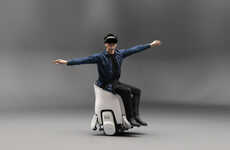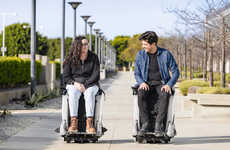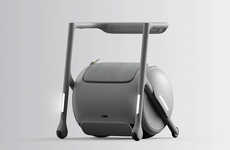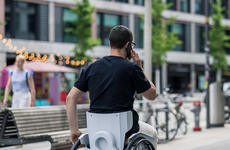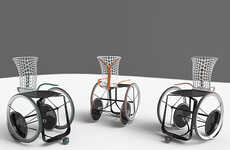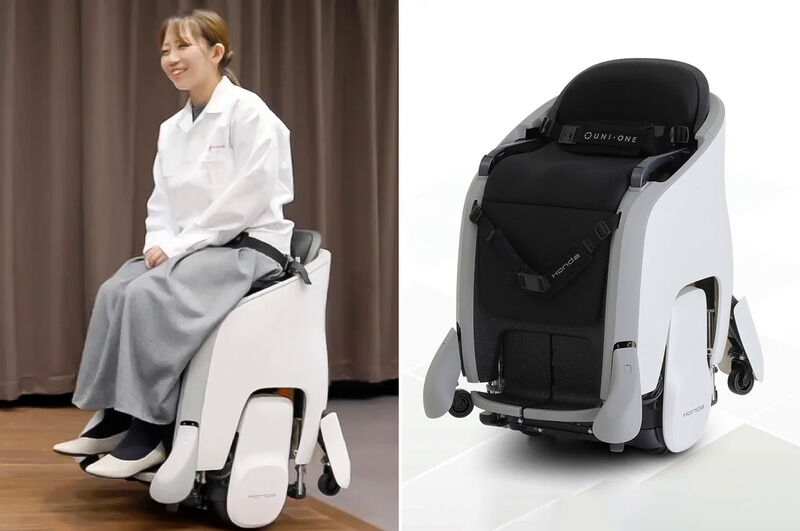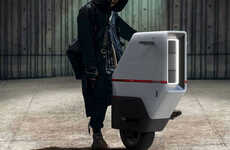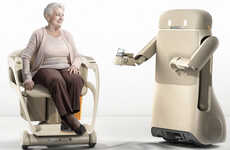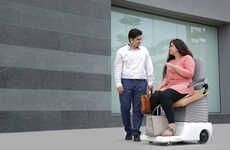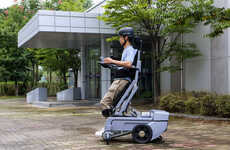
The Honda 'UNI-ONE' Supports Intuitive Movement
Michael Hemsworth — November 15, 2022 — Lifestyle
References: honda.co.jp & yankodesign
The Honda 'UNI-ONE' wheelchair is a robotic solution for those who require a mobility aid to get around that is focused on supporting an intuitive user experience.
The wheelchair is characterized by its handsfree design that is self-balancing and only requires the user to lean in the direction they want to go. The wheelchair is for those with lower limb immobilization and would support a handsfree riding experience that doesn't cause premature fatigue during daily use.
The Honda 'UNI-ONE' wheelchair has been exhibited and won an award at the Good Design Awards 2022, and identifies how mobility solutions could be enhanced for a more intuitive user experience. The wheelchair shows impressive merit for those with mobility impairments, but could also extend to those simply looking for an effortless way to get around in the future.
The wheelchair is characterized by its handsfree design that is self-balancing and only requires the user to lean in the direction they want to go. The wheelchair is for those with lower limb immobilization and would support a handsfree riding experience that doesn't cause premature fatigue during daily use.
The Honda 'UNI-ONE' wheelchair has been exhibited and won an award at the Good Design Awards 2022, and identifies how mobility solutions could be enhanced for a more intuitive user experience. The wheelchair shows impressive merit for those with mobility impairments, but could also extend to those simply looking for an effortless way to get around in the future.
Trend Themes
1. Intuitive Robotic Wheelchairs - The development of intuitive robotic wheelchairs presents an opportunity for companies to provide mobility solutions that better meet the needs of users with mobility impairments.
2. Handsfree Mobility Solutions - Handsfree mobility solutions are an area for innovation as they provide a more user-friendly experience for individuals who require mobility aids.
3. Self-balancing Mobility Aids - The development of self-balancing mobility aids represents an opportunity for companies to provide a more comfortable and less fatiguing experience for users with mobility impairments.
Industry Implications
1. Mobility and Accessibility - The mobility and accessibility industry could benefit from developing more intuitive and handsfree solutions to better meet the needs of users with mobility impairments.
2. Robotics and AI - The robotics and AI industry can leverage their technological expertise to develop innovative mobility solutions that better meet the needs of users with mobility impairments.
3. Healthcare and Medical Devices - The healthcare and medical devices industry could benefit from developing more comfortable and less fatiguing mobility aids that better support the physical and mental well-being of users with mobility impairments.
5
Score
Popularity
Activity
Freshness

